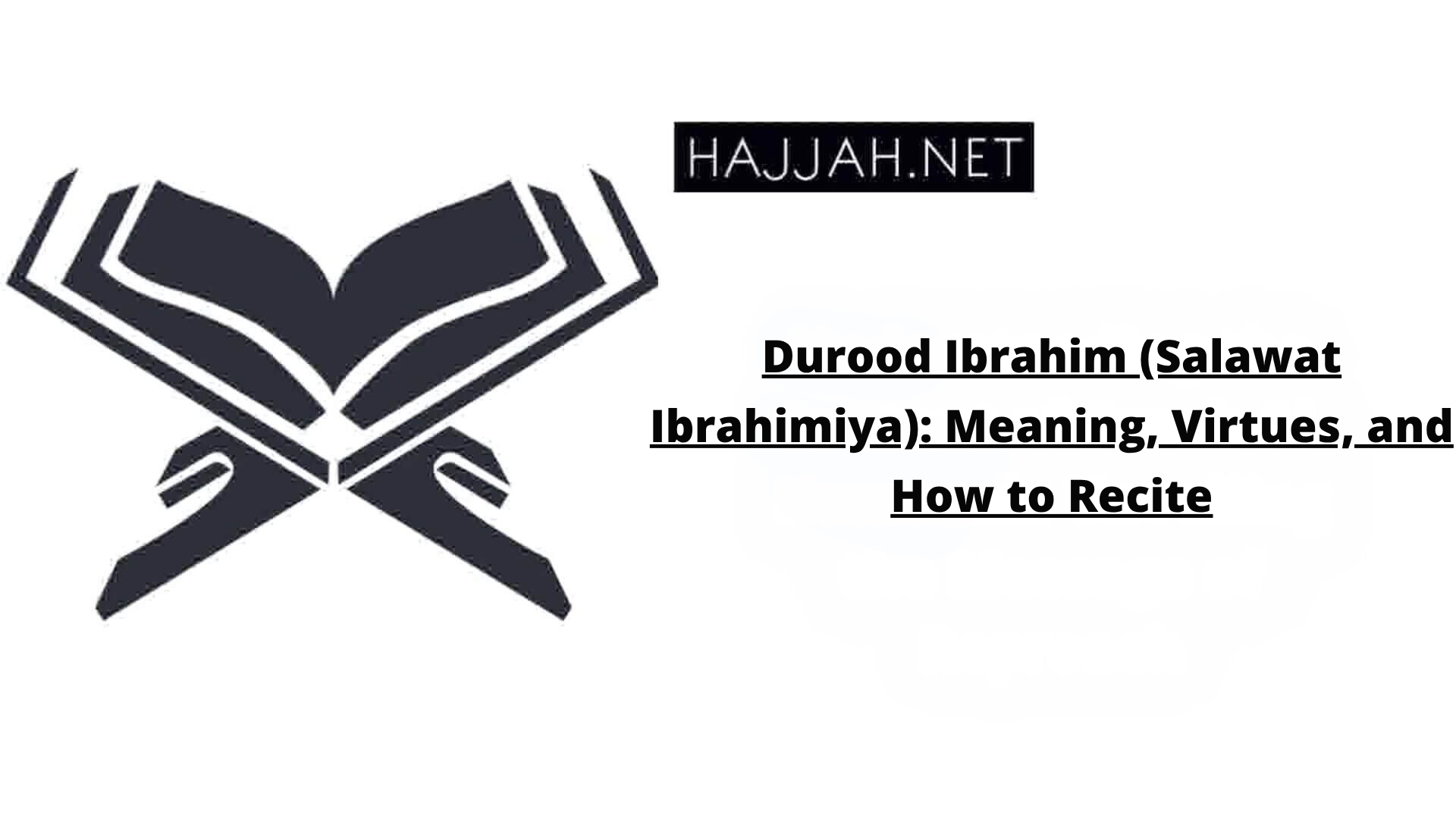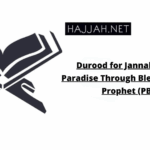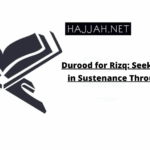Sending blessings (Salawat or Durood) upon Prophet Muhammad (peace and blessings be upon him) is a cornerstone of Islamic practice, an act of love, respect, and obedience to Allah’s command. Among the many forms of Salawat, Durood Ibrahim (also known as Salawat Ibrahimiya or Durood-e-Ibrahim) holds a special and esteemed position. It is considered the most complete and authentic form, taught by the Prophet Muhammad (PBUH) himself, and is an integral part of the Muslim’s daily prayers (Salah). This article explores the full wording, meaning, profound significance, and immense virtues associated with reciting Durood Ibrahim.
What is Durood Ibrahim (Salawat Ibrahimiya)?
Durood Ibrahim is the specific supplication through which Muslims ask Allah to send His grace, honor, mercy, and blessings upon Prophet Muhammad (PBUH) and his family, and also upon Prophet Ibrahim (Abraham, peace be upon him) and his family. Its inclusion of Prophet Ibrahim (AS) highlights the continuous chain of Prophethood and the deep connection between these two great Messengers of Allah.
The Companions of the Prophet (PBUH) once asked him, “O Messenger of Allah, we know how to send Salam upon you, but how should we send Salawat (blessings) upon you?” He then taught them this particular wording, making it the most highly recommended form of Salawat.
Also Read
The Full Wording of Durood Ibrahim
The complete Durood Ibrahim consists of two parts:
Part 1: Asking for “Salah” (Grace, Honor, Mercy)
- Arabic Text: اللَّهُمَّ صَلِّ عَلَىٰ مُحَمَّدٍ وَعَلَىٰ آلِ مُحَمَّدٍ كَمَا صَلَّيْتَ عَلَىٰ إِبْرَاهِيمَ وَعَلَىٰ آلِ إِبْرَاهِيمَ إِنَّكَ حَمِيدٌ مَّجِيدٌ
- Transliteration: Allahumma salli ‘ala Muhammadin wa ‘ala ali Muhammadin, kama sallayta ‘ala Ibrahima wa ‘ala ali Ibrahima, innaka Hameedun Majeed.
- English Translation: “O Allah, send Your grace, honor, and mercy on Muhammad and on the family of Muhammad, as You sent Your grace, honor, and mercy on Ibrahim and on the family of Ibrahim. Indeed, You are Praiseworthy, Most Glorious.”
Part 2: Asking for “Barakah” (Blessings, Increase in Good)
- Arabic Text: اللَّهُمَّ بَارِكْ عَلَىٰ مُحَمَّدٍ وَعَلَىٰ آلِ مُحَمَّدٍ كَمَا بَارَكْتَ عَلَىٰ إِبْرَاهِيمَ وَعَلَىٰ آلِ إِبْرَاهِيمَ إِنَّكَ حَمِيدٌ مَّجِيدٌ
- Transliteration: Allahumma barik ‘ala Muhammadin wa ‘ala ali Muhammadin, kama barakta ‘ala Ibrahima wa ‘ala ali Ibrahima, innaka Hameedun Majeed.
- English Translation: “O Allah, send blessings on Muhammad and on the family of Muhammad, as You sent blessings on Ibrahim and on the family of Ibrahim. Indeed, You are Praiseworthy, Most Glorious.”
Meaning and Significance of Its Components
- “Allahumma salli ‘ala…” (O Allah, send Your grace, honor, and mercy on…): The word “Salli” here encompasses multiple meanings: Allah bestowing His praise upon the Prophet in the assembly of angels, His mercy, His honor, and His grace.
- “‘ala ali Muhammad / Ibrahim” (upon the family of Muhammad / Ibrahim): This includes their righteous followers and, according to many scholars, their spouses and descendants.
- “Kama sallayta ‘ala Ibrahim…” (As You sent Your grace… on Ibrahim…): This links Prophet Muhammad (PBUH) to the esteemed lineage of Prophet Ibrahim (AS), the father of Prophets and a beloved friend of Allah, highlighting the continuity of divine message.
- “Innaka Hameedun Majeed” (Indeed, You are Praiseworthy, Most Glorious): Acknowledging Allah’s perfect attributes as the One deserving of all praise and possessing ultimate glory.
- “Allahumma barik ‘ala…” (O Allah, send blessings on…): “Barik” implies asking for an increase in goodness, prosperity, abundance, and divine favor (Barakah).
The Virtues and Benefits of Reciting Durood Ibrahim
Reciting Durood Ibrahim, and Salawat in general, carries immense virtues:
- Fulfilling a Divine Command: Allah SWT commands the believers in the Quran:
“Indeed, Allah confers blessing upon the Prophet, and His angels [ask Him to do so]. O you who have believed, ask [Allah to confer] blessing upon him and ask [Allah to grant him] peace.” (Quran 33:56 – Surah Al-Ahzab) Durood Ibrahim is considered the most complete way to fulfill this command.
- Receiving Tenfold Blessings from Allah: The Prophet Muhammad (PBUH) said: “Whoever sends blessings upon me once, Allah will send blessings upon him ten times.” (Sahih Muslim)
- Elevation in Rank and Forgiveness of Sins: Another narration states: “Whoever sends blessings upon me once, Allah will send blessings upon him tenfold, will erase ten sins from him, and will raise him ten degrees in status.” (An-Nasa’i – Sahih)
- Closeness to the Prophet (PBUH) on the Day of Judgment: The Prophet (PBUH) said: “The closest of people to me on the Day of Resurrection will be those who sent the most blessings upon me.” (Tirmidhi – Hasan)
- Increased Likelihood of Du’a Acceptance: It is a highly recommended etiquette to begin and end personal supplications (Du’a) with Salawat upon the Prophet (PBUH). Using Durood Ibrahim, being the most comprehensive form, is excellent for this purpose.
- Relief from Worries and Fulfillment of Needs: In a famous Hadith, when Ubayy ibn Ka’b asked the Prophet (PBUH) about dedicating all his Du’a time to sending Salawat upon him, the Prophet (PBUH) replied that if he did so, it would suffice all his worries and his sins would be forgiven. (Tirmidhi – Hasan)
- Receiving the Prophet’s (PBUH) Salutation in Return: The Prophet (PBUH) mentioned that when someone sends Salam upon him, Allah returns his soul to him so he can return the Salam. (Abu Dawud – Sahih)
When is Durood Ibrahim Recited?
- In Salah (Formal Prayer): Its primary and most well-known place of recitation is during the second Tashahhud (the final sitting position before concluding the prayer with Taslim) of every obligatory and voluntary prayer. This makes it a Du’a recited by millions of Muslims multiple times every day.
- Outside Salah: Durood Ibrahim, or other forms of Salawat, can and should be recited frequently at any other time as an act of remembrance (Dhikr), devotion, and seeking blessings – for example, on Fridays, when the Prophet’s (PBUH) name is mentioned, or simply throughout the day.
Conclusion
Durood Ibrahim (Salawat Ibrahimiya) stands as the most excellent and complete form of sending blessings upon Prophet Muhammad (peace and blessings be upon him) and Prophet Ibrahim (peace be upon him), along with their righteous families and followers. Its recitation, especially within the daily Salah, is a cornerstone of a Muslim’s worship, fulfilling a divine command and unlocking a multitude of virtues. These include receiving Allah’s blessings tenfold, forgiveness of sins, elevation in spiritual rank, attaining closeness to the Prophet Muhammad (PBUH) on the Day of Judgment, and increasing the likelihood of one’s personal Du’as being accepted. By understanding its profound meaning and consistently incorporating it into our lives with sincerity, believers can draw immense spiritual benefit and strengthen their connection to Allah and His beloved Messengers.









